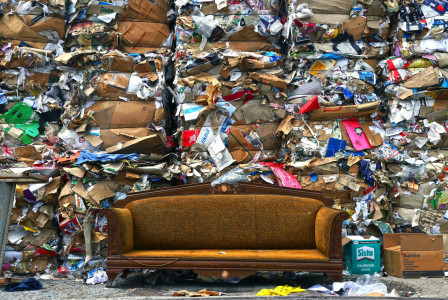Legislative developments
03 November 2025
EU draft rules on destruction of unsold apparel and footwear
Legislative developments
03 November 2025
Regulation and public governance
Aerospace and defence
Agri-food
+22 more
Login / create an account to be able to react
-
537

The European Commission is preparing a delegated act under the Ecodesign for Sustainable Products Regulation (ESPR) that would, govern the limited exemptions, as per the reasons outlined in Article 25(5) ESPR, allowing the destruction of unsold clothing and shoes such as safety risks, counterfeit goods, or irreparable damage. Companies would need to justify and document any exemptions, with phased application expected later this decade. The prohibition to destroy unsold clothing and shoes, as per Article 25(1) ESPR, aims to reduce waste, foster reuse, and support the EU’s circular economy goals.
Topics
Albania
Armenia
Austria
Belgium
Bosnia and Herzegovina
Bulgaria
Croatia
Cyprus
Czechia
Denmark
Estonia
EU-27
Finland
France
Georgia
Germany
Greece
Hungary
Iceland
Ireland
Italy
Kosovo
Latvia
Liechtenstein
Lithuania
Luxembourg
Malta
Moldova
Montenegro
Netherlands
North Macedonia
Norway
Poland
Portugal
Romania
Serbia
Slovakia
Slovenia
Spain
Sweden
Switzerland
Türkiye
Ukraine
Other
Academic / Research and VET Institutions
Business Support Organisation
Company with 250 or more employees
Cluster Organisations
Consumer Organisations
Cultural and Heritage Organisations
Destination Management & Marketing Organisations
EU Institutions
Financial Institutions and Investors
Industry Associations and Chambers of Commerce
International Organisations
Local Authorities
Media / Journalist Organisations
National authorities
Networks and Federations / Confederations
NGOs / Non-profits
Notified Bodies
Regional Authorities
SMEs (a company with less than 250 employees)
Social Economy Entity
Trade Unions
Other
-
Transition Pathway's building blocks
-
-
Regulation and public governance
-
-
Industrial ecosystems
-
-
Aerospace and defence
-
Agri-food
-
Construction
-
Cultural and creative industries
-
Digital
-
Energy intensive industries
-
Energy-renewables
-
Health
-
Mobility, transport, automotive
-
Proximity and social economy
-
Retail
-
Textile
-
Tourism
-
-
Textiles ecosystem areas
-
-
Fibres, yarns and fabrics
-
Apparel and clothing accessories
-
Household/interior textiles
-
Technical textiles
-
Leather and fur
-
Footwear
-
Research and Innovation
-
Technology and Machinery
-
Waste management, reuse and repair
-
Business support and Communication
-
Not area specific (interested in more than one of the above)
-
Share
The European Commission is preparing a delegated act under the Ecodesign for Sustainable Products Regulation (ESPR, Regulation 2024/1781) that will govern the limited exemptions, as per the reasons outlined in Article 25(5) ESPR, allowing the destruction of unsold clothing and shoes. The measure is not yet final and is moving through consultation and adoption procedures.
Key elements (draft):
- Scope: Unsold apparel and footwear listed in ESPR Annex VII.
- Prohibition with exemptions: Destruction may only be allowed in specific cases, such as: health, hygiene or safety risks; legal non-compliance or regulatory unfitness; counterfeit or IP-infringing goods; items technically impossible to de-brand for reuse; products damaged beyond repair or not economically repairable; goods failing voluntary chemical safety standards; or items for which donation has failed (e.g. after offering to at least two social entities for a set period).
- Transparency: Companies must document and justify exemptions, retain records for ten years, and notify waste operators of the exemption applied.
- Enforcement: Member States will be responsible for monitoring compliance and applying penalties.
The act is expected to be finalised in the near term, with phased application thereafter.
This initiative underpins EU circular economy goals by curbing waste and fostering reuse. More details: European Commission initiative page.
Comments (0)
See also
Empowering Consumers for the Green Transition Directive: Dos and Don’ts
- Categories
- Aerospace and defence Agri-food Construction +21 more
EU Personal protective equipment (PPE) Regulation: An Overview
- Categories
- Aerospace and defence Agri-food Construction +21 more
EU Product Environmental Footprint (PEF): An introduction
- Categories
- Aerospace and defence Agri-food Construction +21 more




